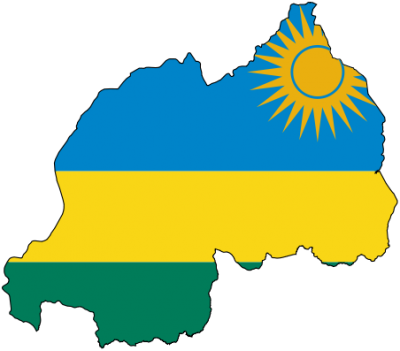BBC Asks ‘What Really Happened in Rwanda? History of the Genocide. Role of the US
A new BBC documentary challenges the world's most basic beliefs about the Rwandan Genocide.

Transcript:
KPFA Weekend News Anchor Sharon Sobotta: Last week, a new BBC documentary titled “Rwanda: The Untold Story” upended the world’s basic beliefs about what really happened during the Rwandan war and genocide of the 1990s..
The history that the documentary challenges is not legally enforced in the United States, as it is in Rwanda, but it is ideologically central to U.S. foreign policy. The bombing of both Libya and Syria were prefaced by U.S. officials’ urgent warnings that we must – quote unquote – “stop the next Rwanda.” KPFA’s Ann Garrison filed this report.
KPFA/Ann Garrison: With “Rwanda: The Untold Story,” the BBC became the first media outlet of its size and influence to radically challenge the received history of the Rwandan Genocide, which has become such a centerpiece of US and NATO interventionist policies.
The documentary opens with the question it attempts to answer.
Image: Most of the world knows the Rwandan Genocide as the story told in the Hollywood film Hotel Rwanda. The new BBC documentary tells a radically different story. 
BBC Host Jane Corbin: Rwanda, a country dominated by its dark history. The senseless barbarity of the genocide still shocks us. We think we know the story., but do we?
Alan Stam: What the world believes and what actually happened are quite different.
BBC: Rwanda’s ruled by President Kagame, regarded by many as the savior of his country. But what kind of man is Paul Kagame?
Kayumba Nyamwasa: We have a dictator. We have a man who is a serial killer, who enjoys killing his citizens.
BBC: He’s a man with powerful friends.
Former British Prime Minister Tony Blair: The President of Rwanda is someone I’ve got a lot of respect for, a lot of time for, and I think he has got a vision for the country.
Filip Reyntjens: Their closeness is a closeness with what I call the most important war criminal in office today.
BBC:: Twenty years on from the genocide, what is the truth about Rwanda?
KPFA: University of Michigan Professor Alan Stam, who did ten years of research in Rwanda with Notre Dame Professor Christian Davenport, contradicts the most basic statistics recounted in the Wikipedia  and parroted by journalists for the past 20 years.
and parroted by journalists for the past 20 years.
Image: University of Michigan Professor Allan Stam on the BBC
Alan Stam: If a million people died in Rwanda, in 1994, and that’s certainly possible, there’s no way that the majority of them could be Tutsi.
BBC: How do you know that?
Stam: Because there weren’t enough Tutsi in the country.
BBC: The academics calculated there had been 500,000 Tutsis before the conflict in Rwanda. Three hundred thousand survived. This led them to their final, controversial conclusion.
Stam: If a million Rwandans died, and 200,000 of them were Tutsi, that means 800,000 of them were Hutu.
BBC: That’s completely the opposite of what the world believes happened in the Rwandan Genocide.
Stam: What the world believes and what actually happened are quite different.
BBC: Estimates of the number of Tutsis and Hutus killed during the genocide vary greatly. The Rwandan government asserts there were far more Tutsi in the country to begin with, and that nearly all of those who died were Tutsis. When Stam and Davenport presented their findings, they were told to leave Rwanda, accused of being genocide deniers.
Stam: We have never denied that a genocide happened.. We don’t deny a genocide happened. But that’s only part of the story.
KPFA: The BBC documentary only hints at US and UK complicity in what happened, and in the cover-up, by reporting that Rwandan President Paul Kagame has very powerful friends, including Tony Blair and Bill Clinton. And by noting that the US military trained General Paul Kagame, just before he led the 1990 invasion of Rwanda from Uganda, because they noted, quote unquote “his military potential.”
For Pacifica, KPFA and AfrobeatRadio, I’m Ann Garrison.
The BBC video is available at http://vimeo.com/107867605.
Rwanda’s Untold Story Documentary from RDI-Rwanda Rwiza on Vimeo.

